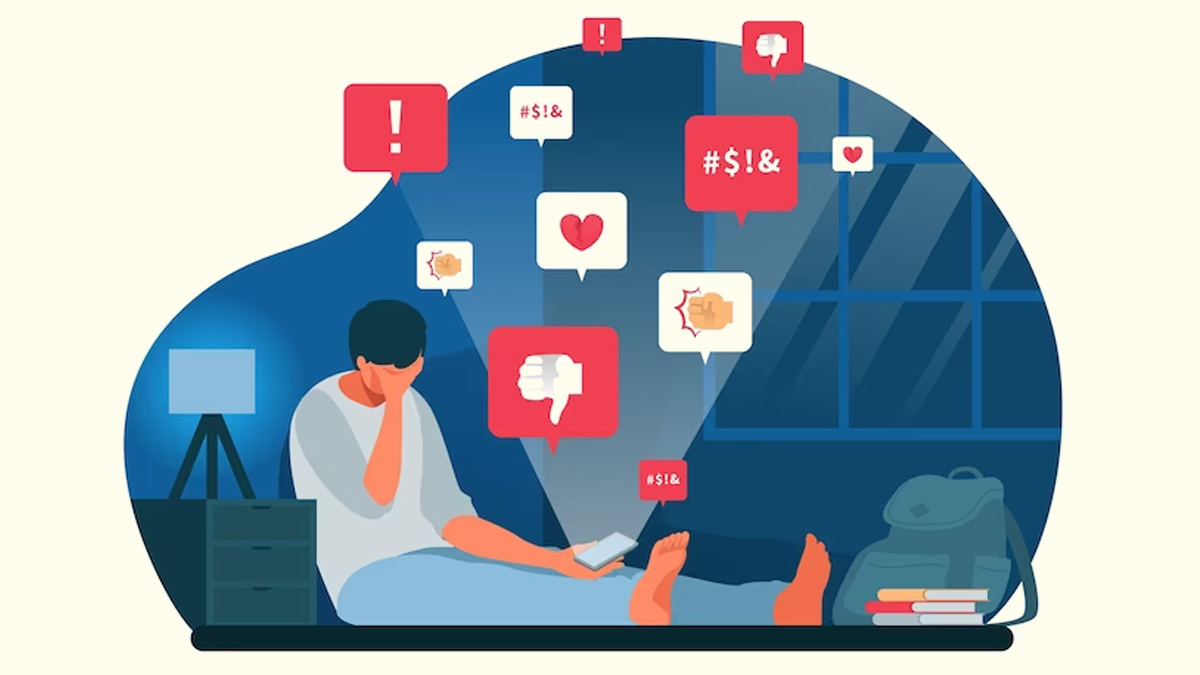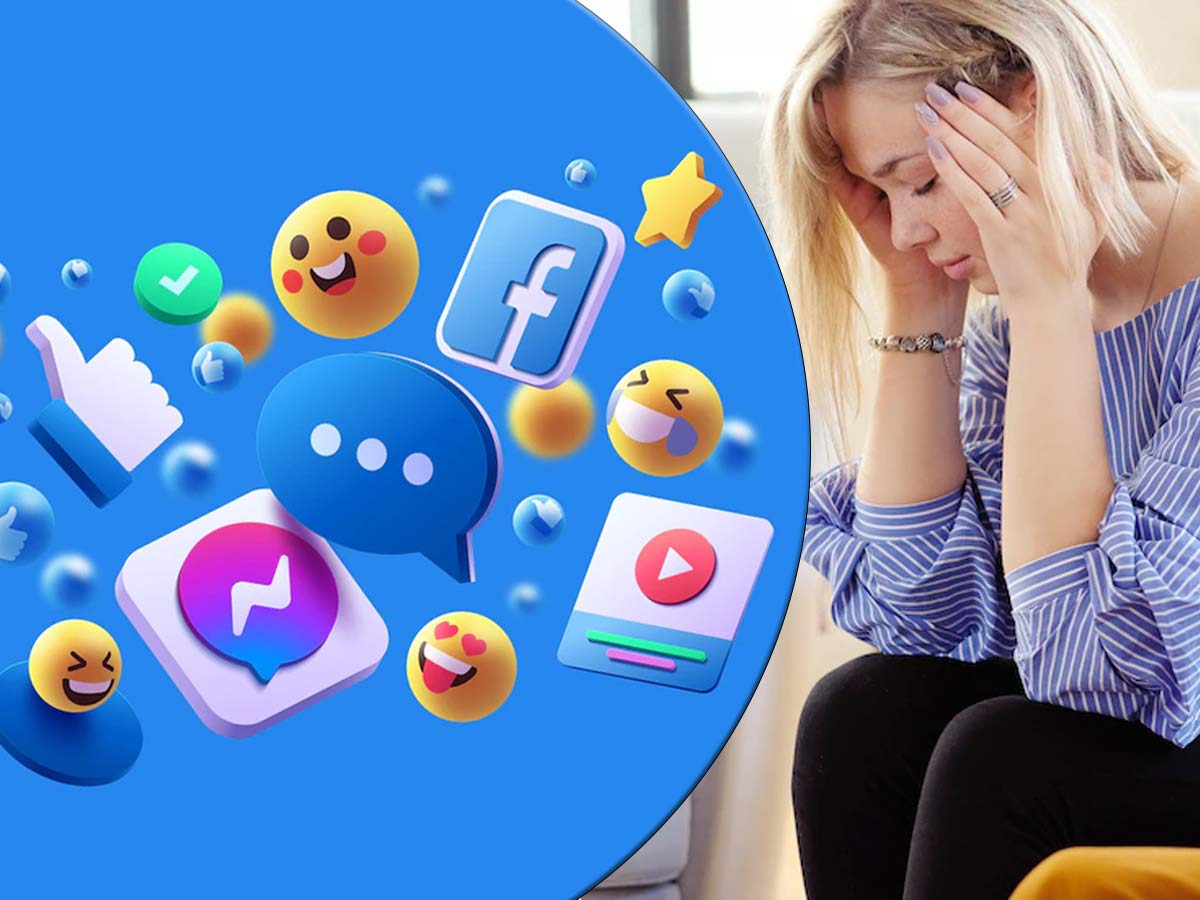Social Media on Mental Health has been used as a tool for positive mental health with positive effects in the short term, and it can help to build social support and reduce loneliness.
Research shows that almost 1 in 5 people have a mental health condition at any time. In this week’s podcast, we talk to social media expert and author Dr. James Phelps. He discusses how he uses his skills and expertise to help others develop strategies to manage their emotional well-being and mental health online.

Many people feel more comfortable sharing their feelings and experiences online than face to face.
People are spending more and more time online these days. With all the information available online, you may be wondering how social media can affect your mental health.
There are more than a few ways you can use social media to your advantage if you are dealing with mental health issues, and if you use it properly, there’s no reason why it should ever be a hindrance.
Social media for Mental Health can be a great way to share information, promote positive mental health messages, and encourage others to discuss their mental health issues.
There is no doubt that social media has transformed the way that we communicate and interact.
It is not surprising that it has become a powerful tool in the fight against mental health issues.
As a society, we have become increasingly reliant on social media. We check our phones multiple times daily and spend countless hours each week scrolling through our Facebook newsfeeds.
Yet, as the use of social media has increased, so has the prevalence of mental health problems among the population.
If you struggle with depression, anxiety, or other mental health disorders, using social media to connect with others might help you.
Social Media
Do social media cause mental health issues, or do people with mental health issues use social media? Are there any cons of using social media on mental health?
When you think about social media, you probably think about Facebook, Twitter, Instagram, YouTube, etc. You probably don’t think about mental health. But you may have noticed posts about mental health issues if you’ve ever been on social media.
These posts may have been helpful to someone who is struggling with depression, anxiety, or other mental health issues. So, what are the pros and cons of using social media on mental health?
I’m thrilled to have the opportunity to interview Dr. Michael W. Smith. He’s an internationally known psychiatrist who specializes in treating people with anxiety, stress, and depression.
Are you feeling stressed out? Perhaps you’ve been feeling anxious or depressed for a while. Or maybe you’ve just had a bad day?
It’s time to take action! In this interview, Dr. Smith talks about the mental health benefits of social media and gives us tips on how to use social media to improve our moods.
If you are suffering from mental illness, your social media feeds are probably full of people discussing their struggles.
It’s 2018, yet we still have a stigma around mental health. This is especially true in the media.
Even though social media is a wonderful way to connect with people, it can also be a way to spread misinformation and even lies about mental health.
In this blog post, I will give you some strategies to help you navigate social media on mental health, whether you’re a person with mental illness or someone who cares about those who suffer from it.
What is mental health?
Feeling isolated or alone is easy, especially if you struggle with mental health issues. The Internet has created a world where you can connect to anyone anytime. But this doesn’t mean that everyone is happy or healthy. Fing is easy
Social media can be a great place to share your thoughts and feelings or to meet other people going through similar struggles. In addition, there are some tools available that can be helpful.
In addition, some people may prefer a more private setting than a public forum, like a closed group or a one-on-one conversation.
This is a topic that’s important to me personally. I have struggled with mental health issues, and social media has greatly affected my recovery.
The first time I saw social media was after I got back from a stint in a psychiatric hospital. My friends had been posting memes on Instagram, but I didn’t understand them.
Then, one of my friends posted a meme with a quote from a book by David Foster Wallace. It said: “It’s only later that we discover that the things that hurt us the most were the very things that formed us the most.”
That quote resonated with me because I realized that my friends were living their lives while I had been locked up.
After that, I started spending a lot of time on Facebook. I started reading a lot of books, and I started writing. This was my way of sharing my experiences with others.
My friend who posted the meme was also an artist. When she posted a picture of her painting, I commented, saying I liked it.
How does it affect my life?
The more we interact with other people, the easier it is to notice the things that make us happy and the harder it is to see the things that make us sad.
It’s common to feel depressed or anxious when struggling with these emotions, but it’s important to recognize that these feelings aren’t the problem. In fact, our response to these feelings causes pain.
To solve the problems caused by these emotions, it’s crucial to start practicing mindfulness.
For example, don’t just sit around feeling sorry if you feel down because you’re struggling with a deadline. Instead, try taking 10 minutes to practice some simple breathing exercises.
After you’ve spent some time practicing, you might notice that you feel much more relaxed. This is because you’ve allowed yourself to focus on the present moment instead of dwelling on the past or worrying about the future.
By taking care of yourself, you’ll be able to handle whatever comes your way.
Social media has become a vital part of our everyday lives. If you haven’t heard of it, it’s a website where users share pictures, videos, articles, etc.
It can be a great way to connect with others and feel less lonely. However, social media can also lead to feelings of depression, anxiety, and loneliness.
Social media is a great place to vent and express your thoughts, but it can be difficult to control the amount of time you spend on it. As a result, many people feel overwhelmed and unhappy.
Setting realistic expectations about what you can expect from social media is important. If you have a history of depression or anxiety, it might be hard to adjust.
The mental health community has been trying to raise awareness about mental illness for years.
Social media is a powerful tool that can be used to bring attention to mental health issues, as well as connect with others who may be struggling.
It’s been proven that social media can be a great way to manage mental health issues and depression.
The problem is that many people suffering from mental health problems may feel too sensitive to handle social media.
So, I hope this article has given you the information you need to understand the power of social media.
Frequently Asked Questions (FAQs)
Q: How do you feel about being judged by others on social media?
A: I understand that we have to live with it, but it can get to you when you are in a vulnerable state. You should not let others’ comments affect you too much.
Q: How would you describe your mental health status?
A: My mental health is really good. I have my ups and downs, but overall, I am stable.
Q: What do you think about the stigma of discussing mental health on social media?
A: I understand why many people fear discussing it on social media. There is little awareness of what goes on in someone’s mind when dealing with depression or anxiety. We need to start talking about it more and educating people more.
Q: Should there be more social media campaigns about mental health?
A: I think there should be more campaigns, especially on Instagram.
Q: How do you keep yourself in check regarding social media?
A: Sometimes I am like, ‘Oh my gosh, I can’t believe I just did this.’ But then I say, ‘It’s okay, I’m fine.’ And when I’m not fine, I think of ways to cope or find help.
Q: What are some tips for keeping yourself from going off the deep end with social media?
A: I tell myself, ‘Just take a breath.’ If you’re in a bad place, remember you don’t want to go down that road again.
Myths About Social Media
1. Facebook, Twitter, and Instagram are bad for mental health.
2. Social media is the most common cause of depression.
3. Social media causes addiction.
4. Social media leads to bullying.
Conclusion
Social media is a big part of people’s lives, but many experts believe it can affect mental health. While there is a lot of research and debate about this topic, I don’t think it’s the right question to ask.
The real question to ask yourself is whether you’re taking care of your own mental health.
In this day and age, mental health issues are on the rise. However, the stigma surrounding mental illness makes it hard for people to seek help.
Social media allows us to connect with others, both near and far, which can help us deal with the stress of everyday life. By sharing our struggles with others, we can get advice and support from other people going through the same thing.
I hope these tips will help you make the most of the power of social media to improve your mental health.




